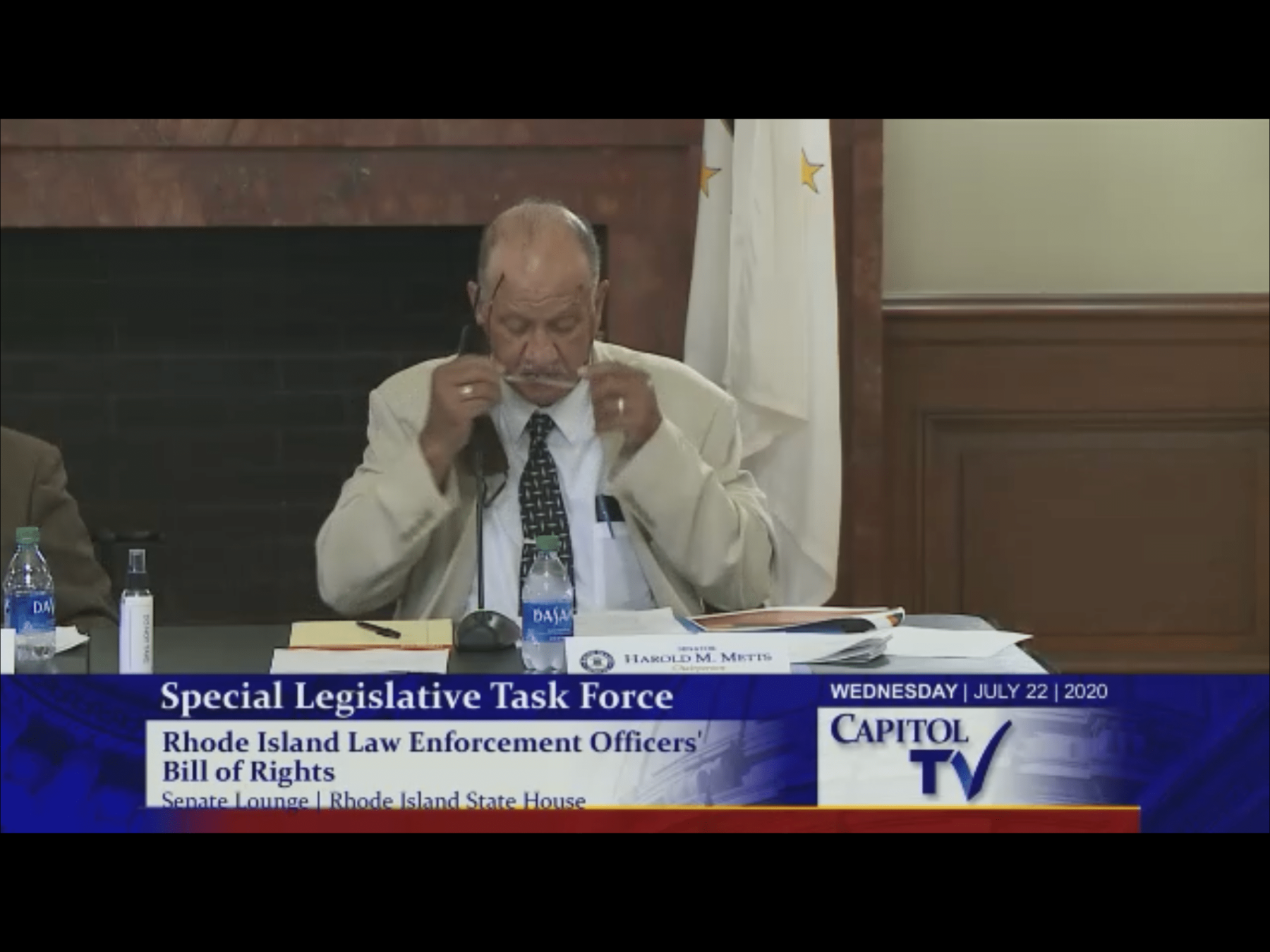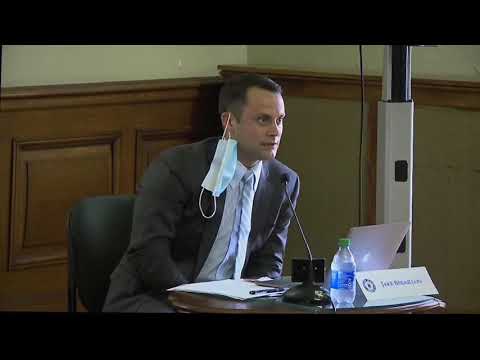Reform or Repeal? The Senate LEOBoR Task Force holds first meeting
Task Force member Jose Batista, executive director of PERA, suggested that the Task Force work “the opposite way around and decide to immediately repeal the entirety of the bill of rights, and spend the rest of our time figuring out how to fill in the gaps.“ The Rhode Island Senate’s “Special Legislative Task Force to Review and Provide Recommendations on
July 22, 2020, 3:40 pm
By Steve Ahlquist
Task Force member Jose Batista, executive director of PERA, suggested that the Task Force work “the opposite way around and decide to immediately repeal the entirety of the bill of rights, and spend the rest of our time figuring out how to fill in the gaps.“
The Rhode Island Senate’s “Special Legislative Task Force to Review and Provide Recommendations on Policies Pertaining to the Rhode Island Law Enforcement Officers’ Bill of Rights” (LEOBoR Task Force) held its first meeting on Wednesday afternoon in person, at the Rhode Island State House. No public testimony was allowed, but the task force did hear a legislative history of LEOBoR from Jacob Bissaillon, who is serving as the Task Force clerk.
They also heard a longer review of LEOBoR laws around the country, from Amber Widgery of the National Conference of State Legislatures.
You can watch the video of the first Task Force meeting here (video will be live soon):
The Task Force was approved by the Rhode Island Senate after being submitted as a resolution by Senator Harold Metts (Democrat, District 6, Providence), who now serves as the committee chair. Senators Cynthia Armour Coyne (Democrat, District 32, Barrington) and Gordon Rogers (Republican, District 21, Coventry, Foster Scituate, West Greenwich) are also on the committee. Rogers was the only member of the task force who was absent.
The rest of the committee consists of:
- Rhode Attorney General Peter Neronha;
- Colonel James Manni of the Rhode Island State Police;
- Colonel Hugh Clements Jr, Providence Police Chief;
- Michael Évora, Executive Director of the Rhode Island Human Rights Commission;
- James Vincent, President of the NAACP Providence Branch;
- Marcela Betancur from the Latino Policy Institute Director;
- Jose Batista, who heads up the PERA (Providence External Review Board ) the state’s only civilian oversight board, and who is also running for State Representative in District 12;
- Reverends Howard Jenkins and Chontell Washington; and
- Anthony Capezza Jr, the state director and lobbyist for the International Brotherhood of Police Officers.
The position Capezza occupies was originally given to George Nee, who heads Rhode Island’s AFL-CIO, but Nee delegated his slot.
The end of Bissaillon’s presentation set some potential parameters for the meetings to follow. Specifically, Bissaillon came up with five points that may deserve further study:
- Composition of the hearing panel that conducts disciplinary hearings for police officers;
- Summary discipline period beyond two days;
- A review of the prohibition on public statements’
- Streamlining procedures while protecting procedural due process;
- Enhanced data gathering, transparency, and oversight.
Task Force member Jose Batista noted that the presentation seemed “rooted in the presumption that we should keep the bill of rights and make changes to it.”
Batista suggested that the Task Force work “the opposite way around and decide to immediately repeal the entirety of the bill of rights, and spend the rest of our time figuring out how to fill in the gaps.”
Batista also noted that he knows of no other public employees, aside from the police, that have a special bill of rights. This includes teachers, firefighters, and other public employees.
The next meting of the LEOBoR Task Force has yet to be scheduled.







